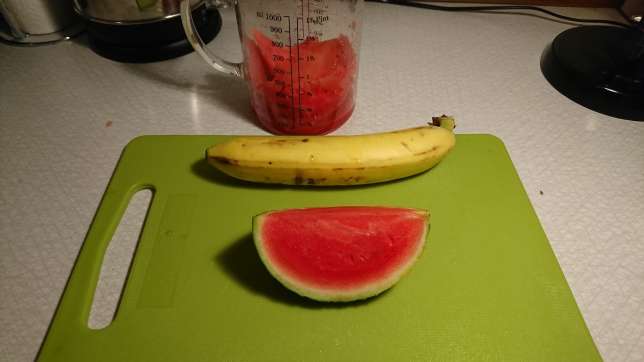I was scared of Ramadan. No joke, it’s a confession. A few years back, I would feel anxious on the approach of Ramadan.
If I heard or read of anyone being excited about Ramadan coming, I would be like, “wow I’m not so like them”. Was it a lack of piety? Lack of trust in Allah? I hope not, because then I wouldn’t fast Ramadan at all.
But I did fast, and it was so difficult. The hunger pangs were the least of the problem. I would wake up from sleep with my limbs shaking. My mind was foggy. My body was sluggish. I couldn’t work. I would sleep all day and be awake all night.
That wasn’t a good solution because my daily prayers would suffer, I had to take a leave from my work, and my social life suffered.
And yet, I saw Muslims around me, even diabetics, incorporate fasting into their lives like it was a piece of cake. How in the world did they do it? And why can’t I do the same? These questions frustrated me until I found the answer.
Ramadan – Easy?
Look closely at the verse of Ramadan in the Quran. After declaring the obligation of fasting a whole month (except if you’re really ill etc.), Allah said:
God wants ease for you, not hardship. He wants you to complete the prescribed period and to glorify Him for having guided you, so that you may be thankful.
(2:185)
How is Ramadan easy?
Yes, Ramadan is easy. it is also a source of ease. It brings so much ease into our lives that we should glorify Allah and be thankful. This ease is not only spiritual, but physical and psychological too.
Ramadan is a complete physical, mental and spiritual detox program. For now, we’ll only look at the physical ease that Ramadan brings.
Our Current Food and Fasting Habits
When it comes to food habits, we are living at a time like no other in the history of mankind. We don’t have to prepare our own food from scratch, nor pick it from the trees or fields or the cow’s udder. It all comes in beautiful packages.
As eating has become easy, naturally we eat more than we ever did. Never in history did humans eat six meals a day, except if they were kings or weirdos.
Moreover, humans seldom ate so much at one meal, or so much sugar and unhealthy chemicals added for taste or preservation.
All this has damaged our bodies in many ways. It has also made us physically and mentally resistant to fasting, and the mere idea of going without food for half a day scares us.
Look at our average iftar and suhur meals. The habit of stuffing low-quality food and lack of nutrients makes our bodies unfit to continue fasting and stay active at the same time. We have turned these two blessed meals completely opposite to the sunnah.
But it’s quite easy to get out of this mess.
Ideal Food and Fasting Habits
1- Eat Less, But Eat Healthy Food Rich in Nutrients
The Prophet Muhammad (peace be upon him) said:
A human being fills no worse vessel than his stomach. It is sufficient for a human being to eat a few mouthfuls to keep his spine straight. But if he must (fill it), then one third of food, one third for drink and one third for air. (Ibn Majah 3349)
Keeping your back straight means having enough energy to do your everyday work. Anything above that is wastage.
The reason why we stuff our stomachs during iftar and suhur is that we think of the body like a car, and the stomach like a fuel tank.
But our body isn’t like a car; it’s a much, much more efficient fuel-burning engine. The average human has a big fuel reserve in the liver, and another much bigger one in the belly. Your liver alone is able to support you through a fast for 12 to 14 hours, before it even taps into that ocean of energy that’s the adipose tissue.
Therefore, eat little at every meal, even during iftar and suhur, eat healthy food rich in vitamins, minerals, amino acids and antioxidants.
2- Don’t Wait For Ramadan to Start Fasting
Make fasting a habit. Fast every Monday, or every Thursday, or both, or every alternate day – the choice is yours. The Prophet Muhammad (peace be upon him) used to fast throughout the year and almost the whole month before Ramadan. (Nasa’i 2355)
If you’re still anxious it will lower your work performance, choose only off-days initially. As your body gets used to fasting, you will overcome the anxiety inshaAllah.
3- Try a Low-Carb Diet, Like Keto
An average American diet consists of 51 percent carbohydrates, most of which are refined, dried, powdered, sweetened, preserved and processed in all sorts of other ways. Adopting a low-carb diet makes fasting a lot easier. To learn more about this, refer to this article.
How Do You Deal With Those Nasty Hunger Pangs?
Firstly, hunger isn’t a continuous phenomenon. It comes and goes in waves. When you feel hungry, relax and let the wave recede on its own. The waves will come less and less as your body adapts to fasting.
As for the other symptoms, such as weakness and dizziness, lack of concentration at work, these will last till your body gets adapted to this new, and healthier, habit, and you begin to experience all the positive rewards of fasting.
Healthier? You bet.
Allah Wants Ease for You
These are some scientifically proven benefits of fasting (while maintaining a healthy diet) as per Healthline and Diet Doctor:
1- It reverses insulin-resistance, a precursor to diabetes.
2- It may even reverse type-II diabetes.
3- Fasting makes losing that stubborn belly fat easy, helping rid of obesity.
4- It reduces oxidative stress and inflammation, helping protect your DNA molecules, slow down aging, and boosting immunity.
5- It can improve heart health.
6- It’s one of the very few things that can help fight Alzheimer’s disease.
7- It helps remove cellular wastage and cleanse your body.
8- Once your body gets adapted to it, your mental clarity and concentration improve.
Just these few of the plentiful benefits of fasting can prove that Allah really wants ease for us through fasting.
Why Did it Take Me So Long to Discover it?
Because I refused to shake that tree.
When Maryam, pregnant, in labor and worried about the consequences, finally sat down in the shade of a date palm, she said
“I wish I were dead or forgotten before this!”
But Allah didn’t tell her it was going to be okay, not yet.
Instead, He told her to shake the tree. (Read chapter Maryam for the whole story)
She trusted Him and shook it, and all her problems were solved.
The difficulty is all in the mind.
Satan’s traps are like a spider’s web. You’re stuck in the middle of it, all afraid. But then you realize that you’re not a tiny fly but a big strong butterfly, and you just spread your wings and swipe the webs away.
Fasting seemed difficult to me because I refused to let my body get adapted to it. Going on a ketogenic diet made me realize that I wasn’t a fly but a butterfly. There was nothing to be afraid of hunger or weakness, it would all go away, if I did it correctly, leaving me much healthier than before.
Trust in Prophet Muhammad (peace be upon him) when he said that eating a few mouthfuls were enough.
Trust in Allah when He says He wants ease for you.




